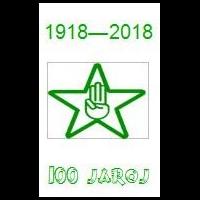訊息: 3
語言: English
grebel (顯示個人資料) 2013年10月10日上午12:54:05
I just posted the text below as a comment at: http://www.linkedin.com/today/post/article/20131002201524-204317422-become-a-global-citizen
If you like the sentiment below, please track it down and "like" it on the web page if you can.
=====================================================
Global citizens need an easy to learn global language that is not bound to a culture.
How do we get endorsement of every child learning a single specific language with these attributes before the age of ten years old on the U.N. agenda?
To truly be a global citizen would require a common language that does not belong to any one country. Despite our best efforts, machine translation is error prone and poor quality. Years of teaching various non-native languages that are bound to a particular culture have yielded very poor results and the perceived ideal language has changed over time. A culture bound language also ensures that some of the world's population have a natural advantage and stronger voice in any discussion.
However, I dream of the day that the U.N. has the vision to endorse a single universal language for children under ten years of age to learn as their first non-native language. If it could be introduced to all schools that hope to create global citizens the U.N. could change the world in a generation or two, possibly less. Esperanto is the best candidate I know of, but any constructed language whose chief attribute is ease of learning would make the world a better place.
Will the U.N. ever have the long term vision to pursue this goal?
It will be a major step forward for international relations, trade, travel, science, the arts, etc.
...I write this in hope.
If you like the sentiment below, please track it down and "like" it on the web page if you can.
=====================================================
Global citizens need an easy to learn global language that is not bound to a culture.
How do we get endorsement of every child learning a single specific language with these attributes before the age of ten years old on the U.N. agenda?
To truly be a global citizen would require a common language that does not belong to any one country. Despite our best efforts, machine translation is error prone and poor quality. Years of teaching various non-native languages that are bound to a particular culture have yielded very poor results and the perceived ideal language has changed over time. A culture bound language also ensures that some of the world's population have a natural advantage and stronger voice in any discussion.
However, I dream of the day that the U.N. has the vision to endorse a single universal language for children under ten years of age to learn as their first non-native language. If it could be introduced to all schools that hope to create global citizens the U.N. could change the world in a generation or two, possibly less. Esperanto is the best candidate I know of, but any constructed language whose chief attribute is ease of learning would make the world a better place.
Will the U.N. ever have the long term vision to pursue this goal?
It will be a major step forward for international relations, trade, travel, science, the arts, etc.
...I write this in hope.
robbkvasnak (顯示個人資料) 2013年10月10日上午1:17:48
Unfortunately, those who lead the world are prone to elitism. They learn English because the they have the time and money to do so and then impose it on the world. The north European politicians are the worst but their lap dogs are the rich in South Europe and the former British colonies. I have taught English as a foreign language for many years and in all the years I have been teaching it, I have met maybe two or three people who truly mastered English to the degree of being native-like. Yes, I have met many people who believe that they have mastered English to the point of being able to write and speak with all the nuances of a native speaker, but, alas, they are mistaken. Then there is also the question of "poetic license" in a native tongue which is a horrible obstacle for non-native learners. If I use the word "irk" as a noun, even though it is defined as a verb by the dictionary, I feel free to do so without anyone thinking that I am a non-native speaker. If some one with a non-native sounding accent does the same, people perceive this uncommon usage as a mistake or error. The same holds for me when I am speaking or writing Spanish, French, Norwegian, Portuguese, and Turkish - all of which I have mastered to a certain degree. This even holds true for people using loan words in their own mother tongue. Recently, I heard a soccer trainer on Deutsche Welle who said: "Ein highlight der letzten Wochen war natürlich unser Verlust beim Spiel gegen ..." Anyone who speaks English would know that "highlight" has a definite positive nuance. We would not say, for example: "a highlight of this last week was the airplane crash in Hicksville that killed seventy people". If I were to say that - at least here in the USA - listeners would think that I was horribly cynical and mean-spirited.
We can all wait for a long time before the U.N. really cares about the poor and disenfranchised or our world.
We can all wait for a long time before the U.N. really cares about the poor and disenfranchised or our world.
se (顯示個人資料) 2013年10月10日上午4:35:15
Nice to read the page and if we can let more people know that Esperanto is recommended by UNESCO in 1954, it would be no surprise.
Besides, I like to use Esperanto is good for the health of young and old.
Anyone who loves the children would pause and think about it.
Besides, I like to use Esperanto is good for the health of young and old.
Anyone who loves the children would pause and think about it.



